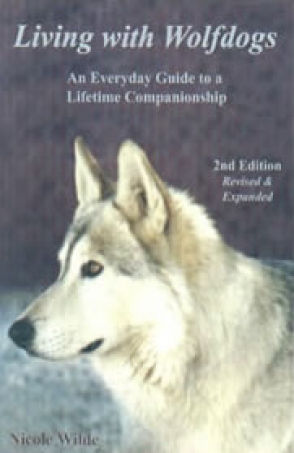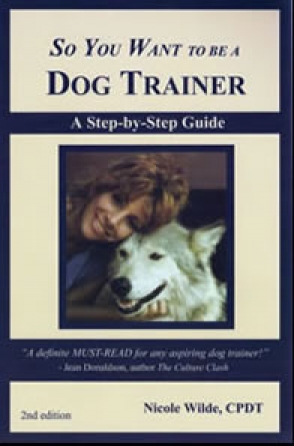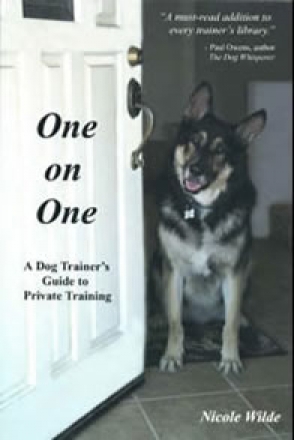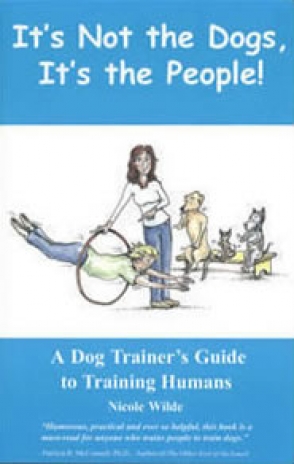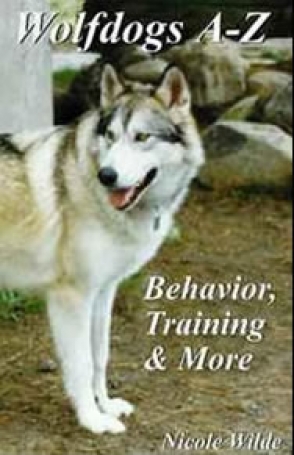Advice, answers, tricks and tips for anyone who shares or is considering sharing their life with these special companions. Packed with photographs.
The Man Who Cried Alpha
“You must be the alpha dog in your pack.” “If you’re not the alpha, your dog will try to take over that role.” You’ve heard these phrases before. “Alpha” is commonly understood to mean the top dog; the head honcho; the big cheese. But where did the term come from, and is it still applicable today?
David L. Mech has studied wolves for 50 years and is a seminal source of information on wolves and their behavior. He’s written several books, including “The Wolf: Ecology and Behavior of an Endangered Species,” which was published in the late 1960s. The book discusses the structure of wolf packs and the behavior of pack members toward each other. Mech included information based on a study done by Rudolph Schenkel, who had published his findings at a time when there was very little information available about how wolves behaved in the wild. At the time, scientists did not think as we do now of wolves as forming and retaining families, but as groups who came together in the winters in order to be more effective hunters.
At the time, to study wolves, a group was formed by combining wolves from various zoos. These wolves had no relationship with each other, so like any other social group, a sort of hierarchy had to be worked out. This was the situation that Schenkel observed before releasing his famous publication that described wolf behavior, pack order, and the “alpha pair.” Thanks to Mech’s book and other publications that then dispersed this information, the idea of an “alpha” trickled down to the general public.
Since Schenkel’s time, scientists have realized that the story of how wolves form and maintain packs is different than originally thought. The real story is this: A male and female wolf find each other, court, mate, and soon have offspring. The parents affectionately guide the offspring, teach them necessarily life skills, and keep them safe. Those pups, at about a year of age, become older siblings to the next litter, and like human siblings, dominate the new pups—but there is no “fighting for rank.” The rank is obvious. The parents are still in charge, period. Eventually, the offspring will disperse and eventually form their own packs.
Does any of this sound familiar? Does the accurate information about wolf packs sound more like wild animals constantly having to fight for rank, suppressing each other’s behavior, and rolling each other on their backs to prove dominance? Or does it sound more like human family structure? In the late 1990s, after David Mech lived on Ellesmere Island with a pack of wild wolves, he wanted to correct the information that now pervades our consciousness about wolf behavior, especially the ever-prevalent concept of the “alpha.” He published an article in 1999 in the Canadian Journal of Zoology and another in 2000 in the Canadian Field Naturalist, which discussed true pack structure. According to Mech, “The issue is not merely one of semantics or political correctness. It is one of biological correctness such that the term we use for breeding wolves accurately captures the biological and social role of the animals rather than perpetuate a faulty view.”
Since we have so many television shows, books, and other media which have, unfortunately, not only been perpetuating this faulty view, but basing training and behavior modification methods upon it, it is important that the public be made aware of the real truth of wolf packs. And if enough people know the truth, maybe we can eventually stop crying “alpha” and get back to training our dogs with affectionate guidance, as good leaders do.
To read the article “What Happened to the Term Alpha Wolf?” go to http://www.wolf.org/wolves/news/iwmag/2008/winter/alphawolf.pdf

